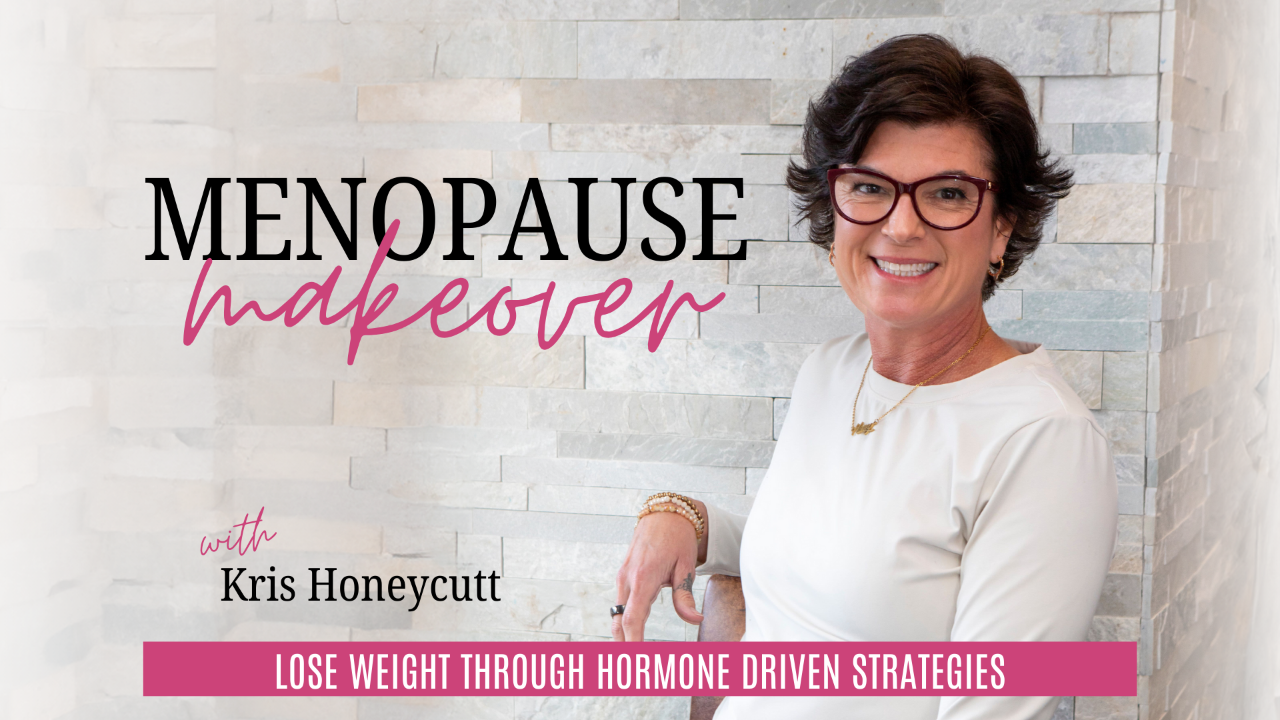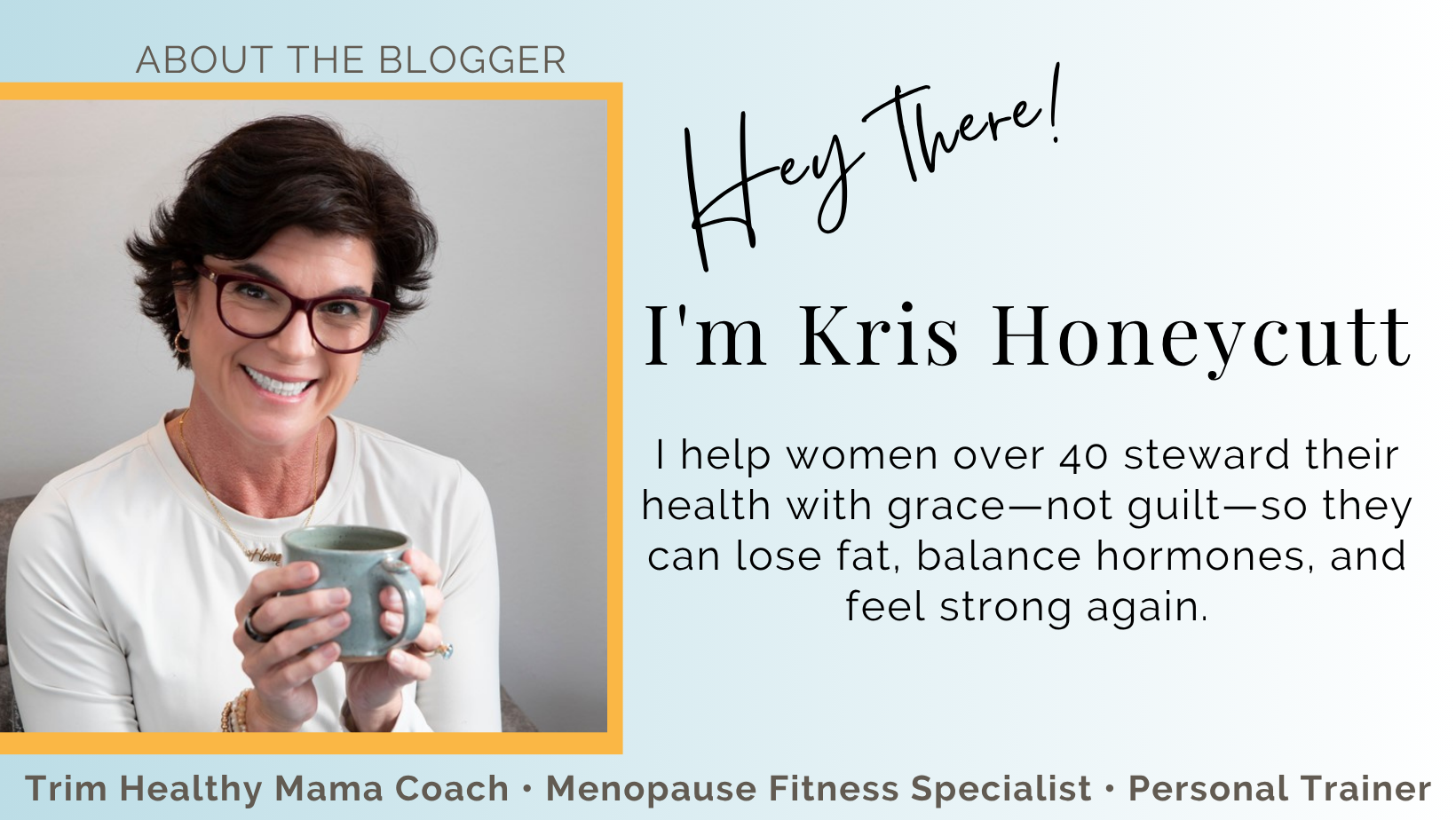Wake Up Tired? How to Reclaim Your Sleep in Perimenopause

Apple Podcast - Spotify - YouTube
Why You’re Waking Up at 3AM in Perimenopause (and What to Do About It)
Raise your hand if your sleep used to be... well, normal-ish.
You’d go to bed, sleep through (more or less), and wake up ready-ish to face the day. But now? Somewhere in your 40s, sleep flipped the script. You wake up at 3am wide-eyed, your brain is running a full-blown mental PowerPoint presentation, and you're wondering: “Is this just how it’s going to be from now on?”
Friend, I see you. I am you.
This week on the podcast, I had the absolute joy of welcoming my friend and colleague Shonda Palmer, founder of Shonda Palmer Wellness. She’s a national board-certified health and wellness coach, a mindfulness teacher, and a total powerhouse when it comes to helping women in midlife finally get the rest they need. She’s coached thousands of women using CBT-I (Cognitive Behavioral Therapy for Insomnia) — and she joined me to unpack why sleep becomes so elusive in perimenopause and menopause, and what we can do about it.
Shonda’s approach is practical, compassionate, and rooted in science — and what she shared in this conversation truly changed the way I think about sleep. Whether you’re wide awake at 3am, exhausted by dinnertime, or feel like you’re constantly running on empty, I want you to know this: you are not broken, and it can get better.
Let’s walk through it together.
Why Sleep Gets Harder in Perimenopause and Menopause
Let’s start with what’s happening under the hood.
As Shonda explained, our hormones — especially progesterone and estrogen — begin to dip during perimenopause and menopause. Both of these hormones are naturally calming. They help you fall asleep and stay asleep. So when they start to decline, you’re more likely to feel alert, anxious, restless, and wake up multiple times during the night.
Throw in midlife stress (aging parents, teen drama, health concerns, empty nesting, career shifts — pick your combo), and your cortisol levels skyrocket. As cortisol rises and melatonin drops, your sleep takes the hit.
Sleep Disruptors in Midlife (Shonda’s Insight):
- Hormonal shifts (low estrogen + progesterone = poor sleep)
- High cortisol from chronic stress
- Life transitions that increase emotional load
- Racing thoughts and nighttime anxiety
- A disrupted circadian rhythm
I mean, can we just take a minute and say YES and AMEN to that? Because it’s real. And we’re not making it up.
The 3AM Wakeup Call: What’s Really Going On?
I asked Shonda why so many of us start waking up at the same time every night — like clockwork. (For me, it’s between 2–3am. Every. Single. Night.)
She shared something that completely reframed my mindset: waking up during the night is actually normal.
Yep. Most people wake up up to seven times throughout the night — in between sleep cycles — and unless something keeps us awake (like a snoring spouse, a racing mind, or low blood sugar), we usually fall right back to sleep without remembering.
But when we notice that we’re awake — and panic — that’s when the trouble starts.
“The thought that really spikes cortisol is ‘Oh no, I’m awake again. I’m going to feel terrible tomorrow.’” – Shonda Palmer
Here’s the shift: instead of thinking, “This is a problem,” try thinking, “This is normal. I’m safe. My body knows how to get the rest it needs.”
Reframing Your Sleep Thoughts: The Game-Changer
One of the most powerful strategies Shonda teaches through CBT-I is reframing your sleep thoughts. This hit me hard, because I realized how much my own negative thinking was fueling my sleeplessness.
Let’s walk through a real-life example I brought to the podcast:
My thought: “I’m waking up every hour.”
My feeling: Frustrated, tense, anxious.
My body: Tossing, turning, clenching my jaw.
Shonda coached me through a powerful reframe:
✅ “Even though I’m waking up a lot, it’s possible this is normal.”
✅ “Even though this is hard, I’ve gotten through tired days before.”
✅ “Even if I didn’t get great sleep, I’ll still be okay.”
That shift — from anxiety to self-compassion — activates your parasympathetic nervous system (aka your rest-and-digest state) and helps your body calm down so you can actually fall back asleep.
You Can’t Control Sleep — But You Can Support It
Sleep isn’t something you can force. Trust me, I’ve tried.
But as Shonda reminded us, there are things we can do to support our sleep and create the conditions for it to happen more naturally.
Shonda’s Top Strategies for Midlife Sleep:
- Only use your bed for sleep.
No scrolling, emailing, or Netflix marathons in bed. Create a strong brain association between your bed and sleep. - Don’t stay in bed awake.
If you’re lying there for more than 20–25 minutes, get up and move to a comfy spot (couch, beanbag, chair) and do something relaxing. Read, breathe, fold laundry — whatever calms you. - Watch your dinner timing.
If you’re eating late (like I sometimes do after baseball games), make sure it’s not a heavy, hard-to-digest meal. If your dinner is light, consider a small Fuel Pull snack before bed to stabilize your blood sugar. - Get curious about nighttime hunger.
Waking up hungry might be a sign of blood sugar imbalance. A small protein + carb bedtime snack might help (like Greek yogurt with cinnamon or half a sprouted toast with collagen tea). - Rethink sleep hygiene.
Yes, keeping your room cool, dark, and screen-free helps. But without managing your mindset, even perfect sleep hygiene can fall short.
What If the Problem Is… Him?
Okay, friend. Let’s go there.
Shonda and I talked about what to do when your partner is the thing keeping you up — whether it’s snoring, a CPAP machine, or just late-night phone use.
Her advice?
- Try earplugs or a white noise machine
- Use a Bluetooth headband that plays calming sounds
- Reframe your frustration with compassionate self-talk
- Consider what she calls a "sleep alliance" (aka temporary separate sleeping spaces)
It’s not selfish. It’s strategic.
Be Kind to You
More than anything, what Shonda emphasized again and again is that self-compassion matters.
“Don’t beat yourself up. Be kind to yourself. There will always be things outside of your control, but you can still take steps that help.” – Shonda Palmer
Midlife sleep struggles aren’t a sign that something’s wrong with you. They’re a sign that your body is changing — and asking you to listen differently.
You’re Not Doomed to Sleepless Nights
If you’ve been stuck in the cycle of sleeplessness, self-doubt, and midlife exhaustion, I want you to know this:
>> You are not a victim of your sleep.
>> You are not failing.
>> And there are tools and strategies that can help.
Whether it’s reframing your sleep thoughts, honoring your circadian rhythm, tweaking your bedtime snack, or finding your own “sleep alliance” — you are not alone, and there’s so much hope.
If this resonated with you, go follow @shonda_palmer_wellness on Instagram or visit her at shondapalmer.com. She’s the real deal.
And if you’re ready to go deeper into this work — from sleep to weight loss to energy and confidence in midlife — come join me inside the Midlife Fat Loss Formula. We walk through exactly what your midlife body needs to feel good again — body, mind, and spirit.
You’ve got this, friend. One peaceful night at a time.



